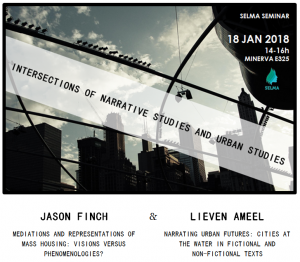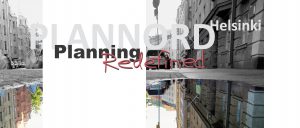Presenting today at the “Big Data and Urban Governance on the Margins of the City” workshop at King’s College, London. The workshop is part of a two-day kick-off of smart city / urban futures research projects. My presentation, “Metaphor into Matter: Examining City Futures in Literary Urban Studies”, looks at the use of metaphor in urban planning and policy. The aim is to use metaphor analysis to unpack rhetorical strategies in planning, and to bring into focus competing planning visions. I also argue that metaphor analysis can be applied not only an instrument for critical analysis, but also as tool for planning. There is considerable potential for a more conscious inclusion of metaphorizations of personal and communal relations to urban environments in PPGIS. Metaphor, and more broadly concepts from literary and narrative studies, can play a role in moving from quantitative “smart” technologies to more qualitative approaches.
I will examine the development of the Kalasatama district in Helsinki, with specific reference to Kalasatama’s smart city aspirations.
Many thanks to Ayona Datta and everyone at the research project for inviting me to participate!

source: hel.fi
I’m drawing in part on some earlier published work:
Ameel, Lieven 2016: “Emplotting urban regeneration: Narrative strategies in the case of Kalasatama, Helsinki.” DATUTOP 34. Re-City. Future City – combining disciplines., 222-240. 19 pages.
https://tutcris.tut.fi/portal/files/6896312/DATUTOP_34.pdf





